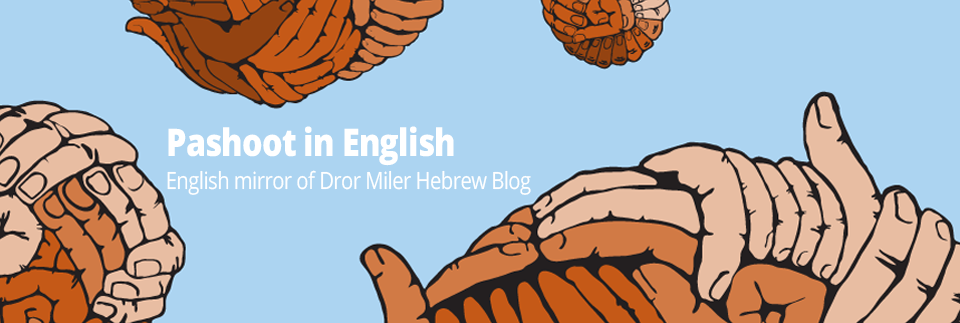I traveled north to visit my brother and his family, who remained behind in Kibbutz Lehavot Habashan. The kibbutz is located ten kilometers from any border, Lebanon or Syria. It's far enough away not to receive tax benefits and not to be evacuated by directive. But it's close enough for soldiers to block and guard it and close enough to hear the explosions in Kiryat Shmona.
It seems that they've given up on interceptions in Kiryat Shmona, both because Hezbollah fires flat and short - after all, it's only 2 km from the border - and because they've evacuated most of the residents, so why waste $150,000 on an interceptor when you can settle for compensation for damage in less than 10% of that.
 |
| Bicycle of my nieces in the kibbutz - watercolor on paper |
Since I arrived here, there have been explosions in Kiryat Shmona. Two barrages plus an anti-tank missile hit throughout the city. The windows in Lehavot shook a little, and the explosions echoed in the valley.
I joined a WhatsApp group called "Kiryat Shmona Residents Remaining in the City" to find out what's happening. My heart is still in Kiryat Shmona, but my body is deeply displaced. I'm scared to go back. The municipality issued another evacuation notice, promising IDF Home Front Command soldiers to patrol between the houses to mark which houses have been evacuated and which still have people. Who are these marks supposed to serve? Our forces? Their forces? The thieves?
Someone on the WhatsApp group was looking for tights for ages 3-4 and a one-piece jumpsuit for age two. Someone else was looking for a barber for a platoon of soldiers with wild hair. Routine.
I took my niece shopping in Rosh Pina. The picturesque Moshava has never been as lively as it is now. In addition to the regular residents, dozens and hundreds of soldiers with a variety of falafel in their mouths and on their shoulders were entering and leaving every possible store. Authorized short leaves in Rosh Pina are a thing. We tore Hazor and Rosh Pina up and bought bike tubes, books, a pencil case, and McDonald's. Life itself.
On the way back, we stopped at Checkpoint David because there was a rocket fire alert in the area. Luckily, we turned right into the valley; otherwise, we would have waited forever. There are trenches, communication trenches, sandbags, APCs, and machine guns at every intersection, hill, and tree. Vibes of World War II in color and reality.
At least the bikes are okay now. We can ride them in the kibbutz.

No comments:
Post a Comment